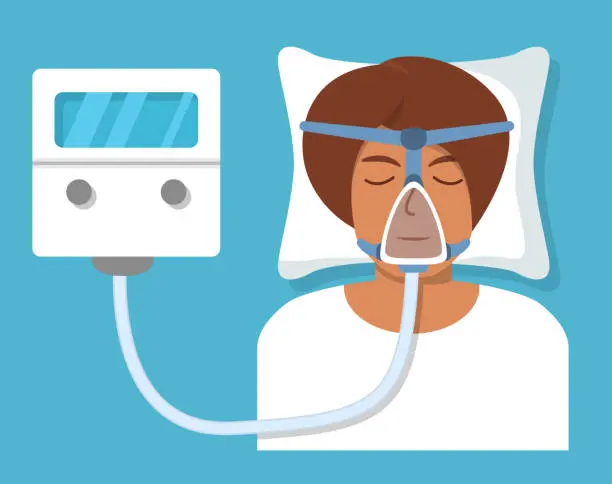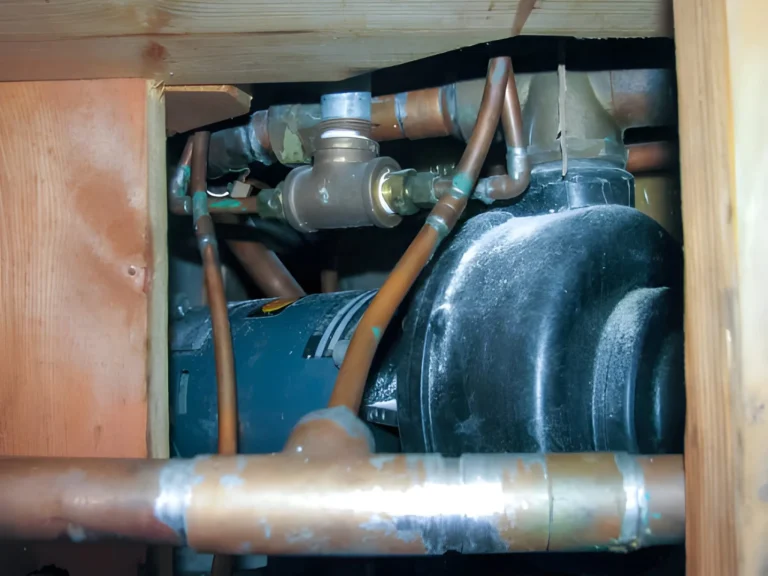How to Choose the Right CPAP Machine for Sleep Apnea
Have you ever woken up feeling just as tired as when you went to bed? For many people living with sleep apnea, restless nights and groggy mornings are an everyday struggle. That’s where a CPAP machine can make all the difference: it’s not just a piece of equipment, but a lifeline to deeper, healthier sleep.
The challenge, though, is that not all CPAP machines are created equal. With so many models, features, and price points available, figuring out which one is right for you can feel overwhelming. Choosing the right machine is about more than comfort, it’s about finding a solution that works for your lifestyle, health needs, and long-term sleep quality.
Why does this matter? Because the right CPAP machine doesn’t just help you breathe easier at night, it supports your heart health, energy levels, and overall well-being during the day. On the flip side, the wrong choice can make treatment frustrating, uncomfortable, or even ineffective.
In this post, we’ll walk through everything you need to know to confidently choose a CPAP machine. You’ll learn about the different types available, what features to look for, the pros and cons to consider, and how to find the perfect fit for your needs. By the end, you’ll feel ready to make an informed choice and take the next step toward better sleep and better health.
Understanding CPAP Therapy and Its Evolution
The concept of CPAP therapy dates back to the early 1980s, when Dr. Colin Sullivan in Sydney first introduced the idea of continuous airflow to keep airways open during sleep. Before this breakthrough, people with sleep apnea had very limited treatment options, often resorting to invasive surgery. CPAP technology quickly became the gold standard, changing the lives of millions worldwide.
At its core, CPAP stands for Continuous Positive Airway Pressure. It works by delivering a steady stream of air through a mask, keeping your airway open and preventing the pauses in breathing that define sleep apnea.
Today, the landscape of CPAP therapy has grown dramatically. Machines have become quieter, smaller, and smarter: many now include humidifiers, data tracking, and even smartphone apps. As awareness of sleep apnea grows, more people are being diagnosed earlier, and innovations continue to make treatment easier and more comfortable.
Understanding this evolution helps you appreciate why choosing the right machine is such a personal and important decision. It’s no longer about just having a CPAP, it’s about finding your CPAP.
Types of CPAP Machines You Should Know
When it comes to CPAP machines, not all models are created equal. Knowing the key types can help you narrow your options and avoid overwhelm.
Here are the main categories:
- Standard CPAP: Provides a fixed level of air pressure throughout the night. Reliable, simple, and often more affordable.
- Auto CPAP (APAP): Adjusts pressure automatically based on your breathing patterns, offering more flexibility and comfort.
- BiPAP (Bi-level Positive Airway Pressure): Delivers two different pressures, a higher one when you inhale and a lower one when you exhale. Often recommended for people who need higher pressure or who struggle with standard CPAP.
These options may sound technical, but the differences matter in practice. For example, someone with mild sleep apnea may do perfectly well with a standard CPAP, while someone with varying breathing patterns may find APAP much more comfortable.
Imagine this: Sarah, a busy mum, struggled with her old fixed-pressure machine because she often felt “pushed” by the airflow. When she switched to an auto-adjusting CPAP, she noticed she woke up less and felt more rested because the machine matched her natural breathing.
Choosing the right type is like finding the right pair of shoes: you want the fit that feels natural for you.
Why Choosing the Right Machine Matters
Selecting the right CPAP machine isn’t just about comfort, it’s about setting yourself up for long-term success with your therapy.
Here are some of the biggest benefits:
- Improved sleep quality: The right machine reduces disturbances and helps you achieve deep, restorative rest.
- Better compliance: If your machine feels comfortable and easy to use, you’re more likely to stick with therapy.
- Health benefits: Consistent CPAP use lowers risks linked to untreated sleep apnea, like heart disease, high blood pressure, and daytime fatigue.
- Lifestyle support: Travel-friendly models and quieter machines make it easier to maintain therapy wherever you go.
- Peace of mind: Features like data tracking help you and your doctor monitor progress and make adjustments when needed.
For example, one study found that patients using auto-adjusting CPAP were more likely to stay consistent with therapy because of the added comfort. This consistency translates into better health outcomes: not just more energy during the day, but also long-term protection for your heart and brain.
Put simply, the right machine isn’t just a device, it’s an investment in your quality of life.
Common Challenges When Choosing a CPAP
Of course, finding your perfect match isn’t always straightforward. Like any medical device, CPAP machines come with a few hurdles to navigate.
Here are some common challenges:
- Cost: High-end machines with advanced features can be expensive.
- Complexity: Too many options can leave you unsure of what you actually need.
- Comfort issues: Some people struggle with masks or airflow settings.
- Maintenance: Cleaning and replacing parts regularly can feel like a chore.
- Adjustment period: It often takes time to get used to wearing the machine nightly.
It’s easy to feel discouraged, but many of these challenges are temporary or solvable. For example, discomfort with masks is often a matter of trying different styles until you find the right fit. And while costs can be daunting, many insurance providers or CPAP suppliers offer payment plans.
The key is not to give up too soon. By working with your doctor, asking the right questions, and staying open to adjustments, you can overcome most obstacles and get the full benefit of therapy.
How to Choose the Right CPAP Machine: A Step-by-Step Guide
Now that you understand the landscape, let’s talk about putting it into action. Here’s a simple process to follow:
- Get a proper diagnosis: Always start with a sleep study and medical advice.
- Know your prescription: Your doctor will recommend the pressure range or type of machine best suited for your needs.
- Consider your lifestyle: Do you travel often? Need something quiet? Value data tracking?
- Test for comfort: Try different masks and settings before committing.
- Check support options: Look for suppliers who offer training, setup help, and follow-up care.
- Compare costs: Balance upfront price with long-term value, including warranty and replacement parts.
Top tips to keep in mind:
- Start small and build comfort over time.
- Don’t hesitate to test multiple mask styles.
- Involve your doctor or a sleep specialist early in the process.
- Track your progress with built-in apps or downloads.
Helpful resources can include CPAP supplier websites, support groups, and apps that sync with your machine for real-time feedback. These tools can make the adjustment period much smoother.
Remember: choosing your machine is a journey, not a one-time decision. Be patient and persistent, you’ll find the right fit.
The Future of CPAP Technology
Sleep medicine is evolving rapidly, and CPAP therapy is no exception. Machines are becoming smarter, more comfortable, and more connected.
Here are some trends to watch:
- AI-driven adjustments: Machines that learn your breathing patterns for ultra-personalized therapy.
- Smaller, travel-ready devices: Making it easier to stay consistent while on the move.
- Integration with wearables: Syncing with smartwatches or health apps for complete health monitoring.
- Quieter, more discreet designs: Allowing users to sleep more naturally without noise distractions.
These innovations could reshape how people experience CPAP therapy, making it not only easier to use but also more empowering. Imagine getting real-time insights on your sleep from your CPAP, your smartwatch, and your doctor, all working together to optimise your health.
For patients, this means less guesswork, faster adjustments, and more comfortable nights. For doctors, it means better tools to monitor and support long-term outcomes.
Bringing It All Together
We’ve covered a lot of ground today: why CPAP machines matter, the types available, the benefits and challenges, and how to make the right choice for you. Choosing a machine may feel overwhelming at first, but with the right approach, it becomes a clear and manageable decision.
Here are the key takeaways:
- The right CPAP machine can transform your sleep and health.
- There are three main types: standard, auto, and BiPAP, each suited for different needs.
- Challenges like cost or comfort can be overcome with patience and support.
- Following a step-by-step process makes choosing your machine much easier.
- Future innovations promise even more personalised and user-friendly options.
When you look at it this way, choosing a CPAP machine isn’t just about treating sleep apnea, it’s about taking back your energy, your health, and your life.
So, if you’re ready to take that step, start by talking with your doctor, exploring your options, and trying out what feels right for you. The sooner you find your fit, the sooner you’ll wake up feeling refreshed and ready for the day.
Final Thoughts
Sleep apnea can feel like a heavy burden, but CPAP therapy offers a proven, life-changing path forward. The right machine is more than a device, it’s your partner in reclaiming restful nights and energetic mornings.
If this topic has sparked your interest, here are a few directions to take next:
- Explore different CPAP masks and accessories to find your comfort zone.
- Talk with your healthcare provider about which machine type suits your needs.
- Join a support group or online forum to hear real-life experiences.
- Try one small adjustment today, like experimenting with a new setting or mask.
We’d love to hear your thoughts: what challenges have you faced with CPAP therapy? What features do you find most.
Also Read-




![Applebee's Specials Today | Discover Affordable Lunch Combo & Deals [2025] 4 Lunch Menu Applebee’s](https://applebemenu.com/wp-content/uploads/2024/09/Lunch-Menu-Applebees-768x432.webp)


